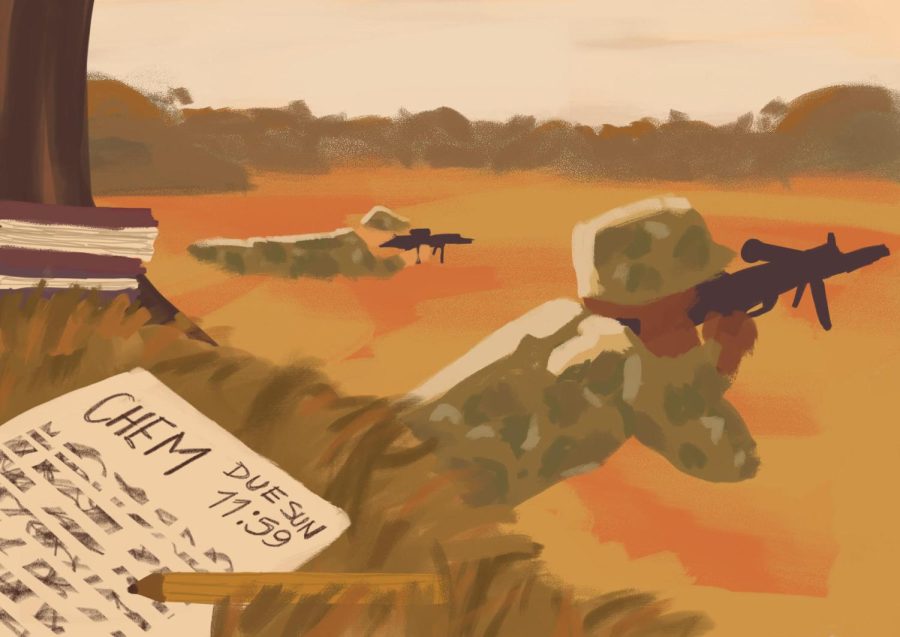UT should ensure National Guard, Army Reserve students receive accommodations
October 11, 2022
Military service is an extensive commitment that many students have taken on for a multitude of reasons. Students often join because of discounted healthcare, money for education ventures or to serve their country.
UT has resources in place for students in the military through Veteran and Military Affiliated Services such as counseling, tutoring and assistance with military benefits. However, academic accommodations for military service are often at the discretion of the student’s professor.
Texas Education Code Sec. 51.9111 states, “An institution of higher education shall excuse a student from attending classes or engaging in other required activities, including examinations, in order for the student to participate in active military service to which the student is called, including travel associated with the service.”
The University acknowledges this code in its attendance policies, but many enlisted students have noticed their professors have failed to accommodate their needs.
Avery Helweg, a sophomore informatics and data science major, has struggled with managing her Army Reserve commitment along with getting her degree. Helweg has received varied responses among professors about excusing absences and rescheduling exams. She describes an instance where she had to take a government quiz with her unit during training because her professor wasn’t responsive despite sending multiple emails in advance.
“I think (UT should) make a blanket policy to where if you need to be out on military activities, that includes reserve days, (then they should make) every professor aware of that,” said Helweg.
The Army Reserve and National Guard provide students with some flexibility in their pursuit of higher education. However, there is only so much leniency that can be granted before it starts to affect a soldier’s military career.
To receive the totality of a soldier’s military benefits in the Army Reserve and National Guard, the soldier must have a ‘good year.’ A ‘good year’ generally entails that the soldier went to every weekend drill for each month and a two-week training period during the summer. Having a ‘good year’ directly affects soldiers’ careers, connections with their unit and retirement benefits.
Drills can be rescheduled, but they are often rescheduled on weekdays, so it can be even harder to take off from classes to conduct drills. Furthermore, students may have to travel long distances based on the placement of their unit.
Because Texas Education Code Sec. 51.9111 is not fully implemented, professors are granted the decision of whether a student may receive accommodations or not.
Art Markman, vice provost for academic affairs, believes that most professors are flexible with students in the military as long as there is proper notice ahead of time.
“The large majority of faculty are going to be accommodating for these kinds of service commitments when they’ve been communicated early,” said Markman. “In addition to that, there is a renewed emphasis here at the University on our engagement with service members and veterans.”
The need for communication between students and professors is necessary when receiving accommodations. However, the military is often not straightforward when communicating when drill dates will be. The length and posted schedule for a soldier are dependent on that unit. There are many cases in which drill weekend will be extended past the usual Saturday and Sunday weekend. With this in mind, it’s difficult for students to just simply communicate when their drills will be and reschedule with a professor.
Texas Education Code Sec. 51.9111 should be universally administered to accommodate students within the Army Reserve and National Guard so that a soldier’s career success is not determined by an unaccommodating professor.
DuBois is a public relations and sociology freshman from Killeen, Texas.















